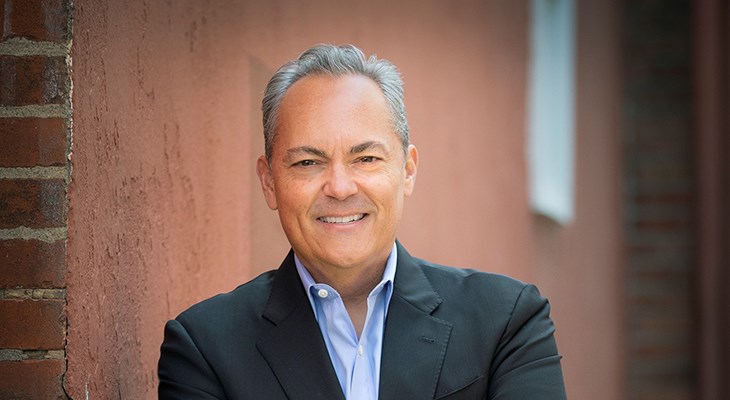Leading CollisionRight, the sixth largest collision repair company in the U.S., through 32 acquisitions since 2020 is CEO Richard Harrison. The automotive aftermarket industry is highly fragmented, he told attendees at last year's Columbus Smart Business Dealmakers Conference, which creates a robust pipeline for the company to pursue a roll-up strategy.
"The economics are very attractive," Harrison says. "We can go in with our size and scale and reduce multiples by a couple turns through our supply chain savings. So, we're very excited about the future and we could continue to do deals and we think could be a sizable participant in this industry."
One change he's now dealing with is the increase in the cost of capital. As a PE-backed company, he says they've taken on some mezzanine debt and put more equity in to get more deals done. Not all PE groups want to do that as it can have a negative effect on their return metrics, which can make them reluctant to put cash in. But for CollisionRight, the approach is a function of access to capital.
"I think these interest rates are more normal, but it's created a lot of uncertainty in the market," he says. "It's that uncertainty that causes people to pause about the future and deploying capital. So, my sense is things have stabilized a bit. And for good businesses with a good underlying investment thesis that has attractive economics, you'll get the cash to go get those deals done."
With a good business thesis, he says a company can get results every quarter. His investors, for example, remain excited about the business because it's been able to deliver EBITDA as they've added companies. So, it's not just about doing deals. The real work is around integration — building systems, leading people, unlocking synergies. And that, he says, is what creates the excitement and enthusiasm with bankers and investors to want to continue to fund the growth story.
When doing deals, he says they deal with a lot of brick and mortars. So, sometimes to bridge the valuation gap, they'll acquire the real estate and do a sale leaseback. He says in a way, they arbitrage on the value of the real estate to help get to a number to get a deal done. Then, on the synergy side, he says his company buys a lot of materials, so when they look at the P&L of a body shop target, they can often increase EBITDA just through their procurement program.
"So, that's pretty exciting and I think some of the benefits of scale," Harrison says. "And that's really what we're trying to do to unlock value for our shareholders."
Because they're using a leveraged model, when rates go up, CollisionRight's quarterly debt service payment goes up. That, he says, has created more headwind for the company and its growth model.
"I would have preferred pre-2022 finance environment, but that's the new reality," Harrison says. "Our competition has to play by the same rules. So, it's just really important that you operate your business and you deliver the results for your shareholders, because that creates so much excitement and energy to want to find additional ways to provide capital. So, we've put additional equity into the business, we've taken on other debt, but it has made it more challenging to grow. It's capped the growth. But we're very bullish on what we're doing and think that the money will come if you can produce double-digit EBITDA and grow your business."
Important as a company pursues deals is having a solid backing from the board, investors, and bank.
"When we're out in the market, knowing that we've got an investor group that loves what we're doing, loves the market opportunity, and gives us a lot of air cover to go out and be aggressive, I think that's where it starts," he says. "And that's around strategy and I think it's around building a track record as an operating team; that they know you can integrate, they know you can get the synergies, you can put the team together. To me, that's really where you get the ability to then go and be aggressive."
Having done throughout his career in the automotive space some 150 deals, leading the effort, and then sticking around to integrate and run it. It comes down to personal conviction, energy and sticking with it, he says, because stuff happens. But it's also not being afraid to walk away from a deal when some of the warning flags come up.
"I've had, in my experience, times where I've wanted to do the deal so bad that perhaps I wasn't as critical as I should have been in the due diligence," Harrison says. "So, that, I think, is just a lesson learned, is to really listen to your advisers on the DD side. But the persistence is key because there's good days and bad days. And when you're starting out, you're by yourself and you got an idea, that's pretty lonely. And then when you grow your business, and you've got some size and scale, everybody wants to take you to lunch."




